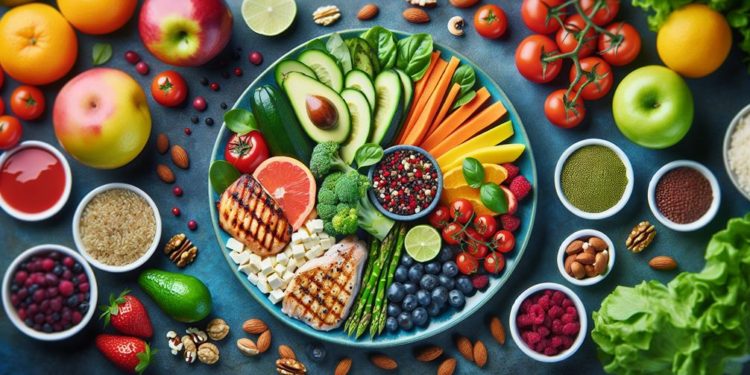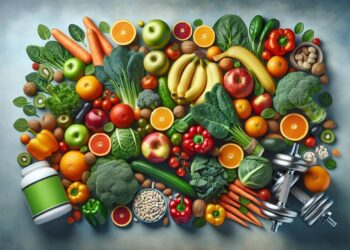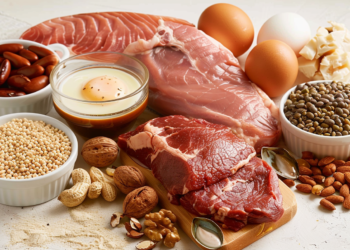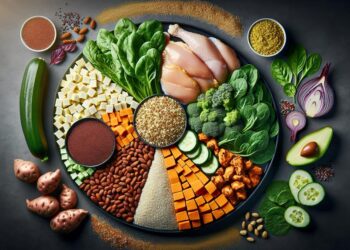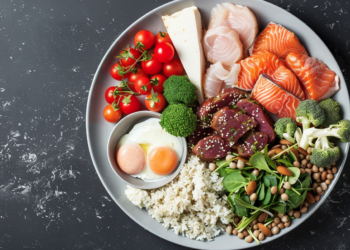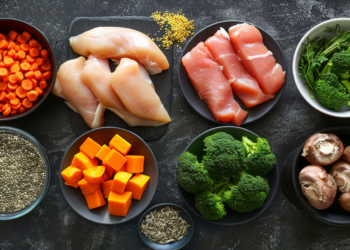They say, "You are what you eat." And when it comes to weight loss, this adage couldn't be more true. Achieving and maintaining a healthy weight requires more than just counting calories or following the latest fad diet. It's about nourishing your body smartly with a balanced diet plan that provides all the essential nutrients while promoting weight loss. But where do you start? How do you create a diet plan that not only helps you shed those extra pounds but also keeps you feeling energized and satisfied? In this discussion, we will explore the ins and outs of balanced diet plans for weight loss, providing you with practical tips and strategies to nourish your body smartly and reach your health goals.
Key Takeaways
- A balanced diet is important for weight loss as it provides essential nutrients, helps maintain a healthy weight, reduces the risk of chronic diseases, and boosts energy levels.
- Nutrient-dense foods such as leafy green vegetables, lean proteins, whole grains, fruits, and healthy fats should be included in a balanced diet for weight loss.
- Portion control is crucial for weight loss and can be achieved by using smaller plates, being mindful of serving sizes, and listening to your body's hunger and fullness cues.
- Hydration plays a role in weight loss as water helps suppress appetite, aids in digestion, and can reduce calorie intake when consumed before meals. Regular physical activity, including both strength training and cardiovascular exercises, is essential for weight loss and overall health.
Understanding the Basics of a Balanced Diet
To understand the basics of a balanced diet, you need to know what nutrients your body requires for optimal health and weight loss. A balanced diet provides your body with all the essential nutrients it needs to function properly. It includes a variety of foods from different food groups, such as fruits, vegetables, whole grains, lean proteins, and healthy fats.
One of the nutritional benefits of a balanced diet is that it ensures you are getting all the vitamins, minerals, and antioxidants your body needs. These nutrients play a crucial role in supporting your immune system, preventing chronic diseases, and promoting overall well-being.
Portion control is another important aspect of a balanced diet. It helps you maintain a healthy weight and prevents overeating. By understanding appropriate portion sizes, you can better control your calorie intake and achieve your weight loss goals.
To practice portion control, it is important to be mindful of your eating habits. Pay attention to your hunger and fullness cues, and try to eat slowly and enjoy your meals. It can also be helpful to use smaller plates and bowls to control portion sizes visually.
Incorporating the Right Macronutrients Into Your Diet
Incorporating the right macronutrients into your diet is essential for maintaining a balanced and nutritious eating plan that supports weight loss and overall health. When it comes to choosing the right macronutrient balance, two popular diets often come to mind: Keto and Paleo. Let's take a closer look at how these diets differ and which one might be best for you.
- Keto vs Paleo: The Keto diet focuses on a high-fat, low-carb approach to weight loss. By severely limiting carbohydrates, your body enters a state of ketosis, where it burns fat for fuel instead of glucose. On the other hand, the Paleo diet emphasizes whole, unprocessed foods similar to what our ancestors ate. It promotes lean proteins, healthy fats, fruits, vegetables, and eliminates grains, dairy, and processed foods.
- High protein vs high carb: The debate between high protein and high carb diets has been ongoing for years. High protein diets are known to promote muscle growth and repair while keeping you feeling full and satisfied. On the other hand, high carb diets provide quick energy for physical activity and can support endurance training. Ultimately, the right balance depends on your individual goals and preferences.
- Finding the right balance: It's important to remember that every body is different, and what works for one person may not work for another. Experiment with different macronutrient ratios and listen to your body's response. Consulting with a registered dietitian can also provide personalized guidance and support.
Incorporating the right macronutrients into your diet is crucial for achieving your weight loss goals. By considering the differences between Keto and Paleo, as well as the benefits of high protein and high carb diets, you can find the balance that works best for you. Remember, it's all about nourishing your body smartly and making choices that promote overall health and well-being.
Choosing Nutrient-Dense Foods for Weight Loss
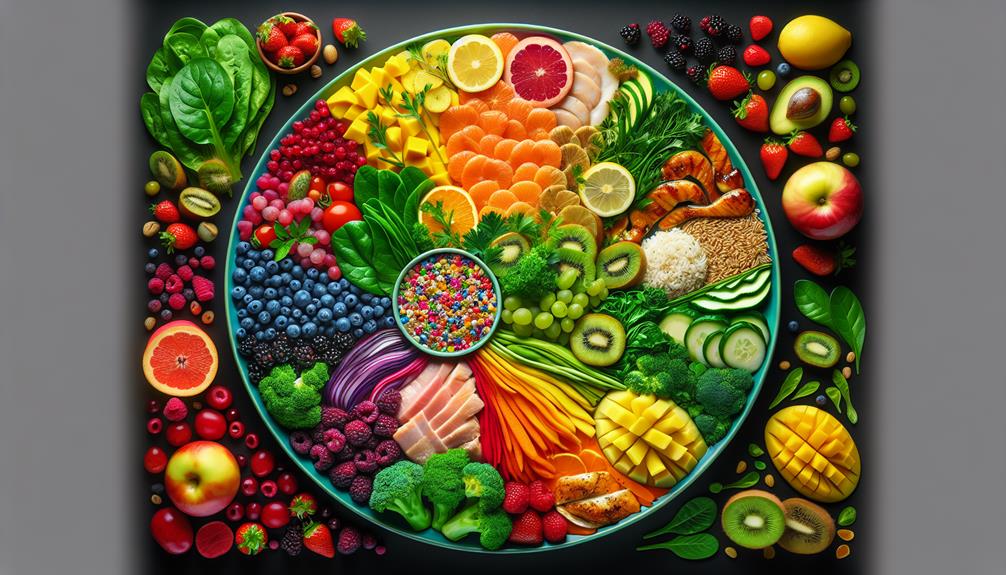
Choosing nutrient-dense foods is essential for effective weight loss and overall health. When it comes to weight loss, it's important to focus on foods that provide a high concentration of nutrients while being low in calories. Nutrient-rich snacks are a great way to stay satisfied and nourish your body during your weight loss journey.
Including fiber in your diet can be particularly beneficial for weight loss. Fiber is a type of carbohydrate that the body cannot digest, so it adds bulk to your meals without adding extra calories. This helps you feel fuller for longer, reducing the chances of overeating. High-fiber foods also tend to be nutrient-dense, providing essential vitamins, minerals, and antioxidants.
When choosing nutrient-rich snacks for weight loss, opt for options such as fruits, vegetables, nuts, and seeds. These snacks are packed with essential nutrients like vitamins, minerals, and healthy fats. They also provide a good amount of fiber, which can help control your appetite and support weight loss.
Creating a Meal Plan for Balanced Weight Loss
When creating a meal plan for balanced weight loss, it is important to focus on incorporating a variety of nutrient-rich foods that support your overall health and weight loss goals. Here are three key strategies to consider:
- Meal Prep: Planning and preparing your meals in advance can help you make healthier choices and avoid impulsive, unhealthy options. Set aside some time each week to plan your meals, make a grocery list, and prep ingredients. This way, you'll have nutritious meals ready to go when you need them, making it easier to stick to your weight loss plan.
- Portion Control: Controlling portion sizes is essential for weight loss. Use smaller plates and bowls to help reduce portion sizes visually. Pay attention to hunger and fullness cues, and try to eat slowly to give your body time to recognize when it's satisfied. Also, remember that it's okay to indulge in your favorite treats occasionally, but be mindful of portion sizes and enjoy them in moderation.
- Balance and Variety: Aim to include a mix of macronutrients (carbohydrates, proteins, and fats) in each meal. Fill half your plate with fruits and vegetables, one-quarter with lean proteins, and one-quarter with whole grains or starchy vegetables. This will provide you with a good balance of nutrients and keep you feeling satisfied. Additionally, incorporate a variety of foods to ensure you're getting a wide range of vitamins, minerals, and antioxidants.
Implementing Healthy Eating Habits for Long-Term Success
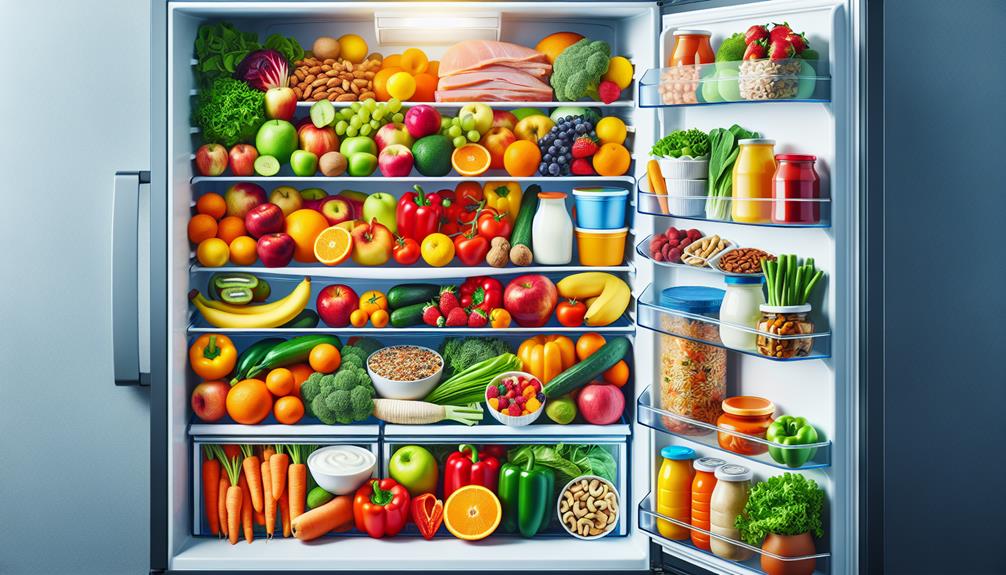
To achieve long-term success with your weight loss goals, it is crucial to establish and maintain healthy eating habits. Long term sustainability is key when it comes to maintaining a healthy weight and overall well-being. One important aspect of healthy eating habits is practicing mindful eating. Mindful eating involves being fully present and aware of your eating experience, paying attention to the taste, texture, and satisfaction of each bite. By focusing on the present moment and listening to your body's hunger and fullness cues, you can avoid overeating and make more nutritious food choices.
Another important aspect of implementing healthy eating habits for long-term success is to make gradual changes. Instead of making drastic changes to your diet, which can be difficult to sustain, start by making small, realistic adjustments. For example, you can begin by adding more fruits and vegetables to your meals, choosing whole grains over refined grains, and opting for lean protein sources. These small changes over time can lead to significant improvements in your overall diet and weight management.
Additionally, it is important to be consistent with your healthy eating habits. Consistency is key when it comes to long-term success. Aim to make healthy food choices on a daily basis and avoid a restrictive mindset. Allow yourself to enjoy occasional treats in moderation, but always prioritize nutrient-dense foods that nourish your body.
Frequently Asked Questions
How Many Calories Should I Consume Each Day to Lose Weight?
To lose weight, you should consume fewer calories than you burn. Calorie tracking helps you monitor intake. However, be aware of weight loss plateaus, where your progress may stall. Adjusting your calorie intake or exercise routine can help break through these plateaus and continue losing weight.
Can I Still Enjoy My Favorite Foods While Following a Balanced Diet Plan?
You can have your cake and eat it too! While following a balanced diet plan, you can still enjoy your favorite foods by finding healthier alternatives and incorporating them into your diet. It's all about balance!
Is It Necessary to Count Macros or Can I Focus Solely on Eating Nutrient-Dense Foods?
It's not necessary to count macros if you focus on eating nutrient-dense foods. By prioritizing quality over quantity, you can still achieve weight loss goals while nourishing your body smartly.
Are There Any Specific Foods That I Should Avoid When Trying to Lose Weight?
When trying to lose weight, it's important to avoid certain foods that can hinder your progress. Focus on nutrient-dense options and steer clear of sugary drinks, processed snacks, and fried foods.
How Can I Stay Motivated and Maintain Healthy Eating Habits in the Long Run?
To stay motivated and maintain healthy eating habits in the long run, remember that it's a journey, not a sprint. Set realistic goals, find an exercise routine you enjoy, and surround yourself with support. Stay committed, and you'll achieve long-term success.
Conclusion
In conclusion, a balanced diet plan is essential for successful weight loss. By understanding the basics of nutrition and incorporating the right macronutrients into your diet, you can nourish your body smartly. Choosing nutrient-dense foods and creating a meal plan that meets your nutritional needs will support your weight loss journey. Additionally, implementing healthy eating habits will ensure long-term success. Remember, a balanced diet is not only about losing weight but also about nourishing your body for overall health and well-being.


